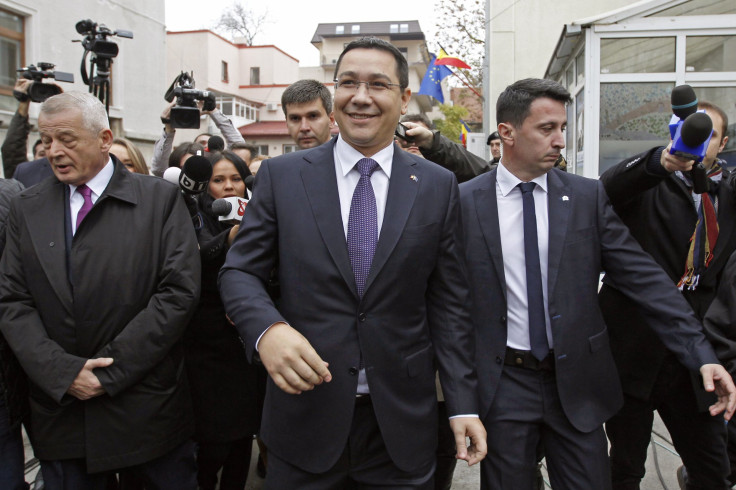Romanian Elections 2014: Prime Minister Victor Ponta Concedes Presidential Runoff To Klaus Iohannis

Klaus Iohannis won Romania’s presidential election Sunday in a close runoff with Romanian Prime Minister Victor Ponta, Reuters reported. Ponta, who was favored to win and had a slight lead in exit polls, told reporters he “called Mr. Iohannis and … congratulated him for his victory.”
“The people is always right,” Ponta said, according to Romania-Insider. The first official results were still pending.
The unexpectedly close presidential runoff was seen as crucial for Romania, one of Europe’s poorest countries, which has long had to combat widespread corruption in government, Agence France-Presse reported. This year’s presidential election was Romania’s seventh since the fall of dictator Nicolae Ceaucescu in 1989. Turnout for Sunday’s balloting was higher than the last election in 2009.
The first round of voting took place Nov. 2. Ponta claimed 40 percent of the vote to Iohannis’ 30 percent. However, nearly half of ballots cast abroad were for Ponta’s conservative opponent. Ponta received just 16 percent of votes cast abroad, AFP said.
With 40 percent of the vote counted, Iohannis led Ponta with more than 56 percent of the vote, Romania-Insider reported. “We won! We have taken our country back!” Iohannis posted to Facebook.
Iohannis has served as mayor of Sibiu since 2000. He will succeed Traian Băsescu as president of Romania. Băsescu’s term ends Dec. 21.
Pundits expected Ponta, who led opinion polls throughout the race, would become Romania’s next president. However, Iohannis surged in Sunday’s voting.
"We're seeing a spectacular comeback by Iohannis, who now has a competitive advantage over Ponta in a tight vote," political commentator Cristian Patrasconiu told Reuters. "It's still very hard to predict a winner, but it's clear that the final outcome will depend on votes from the diaspora, who showed up at polling stations in larger numbers than in the first round."
© Copyright IBTimes 2024. All rights reserved.












